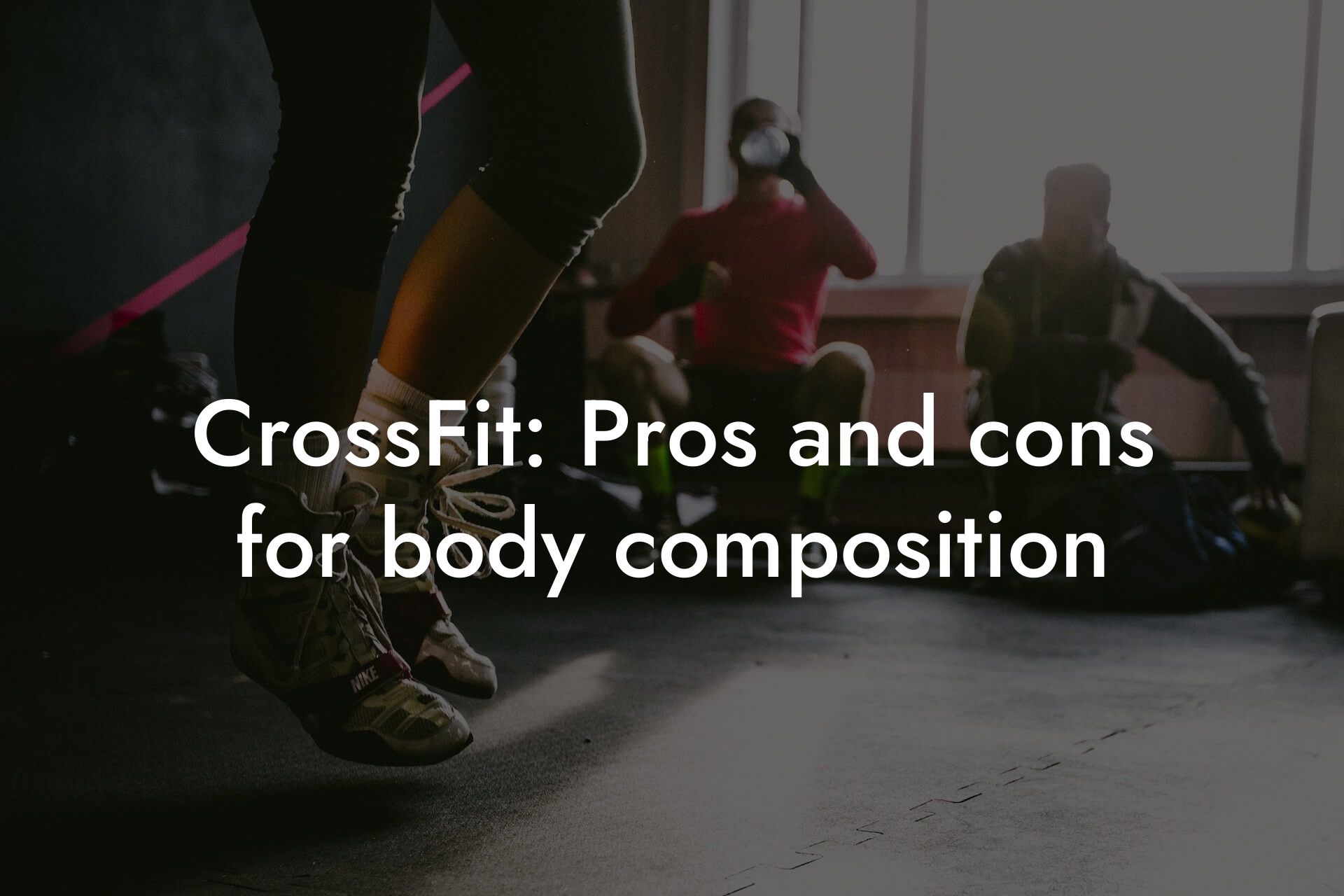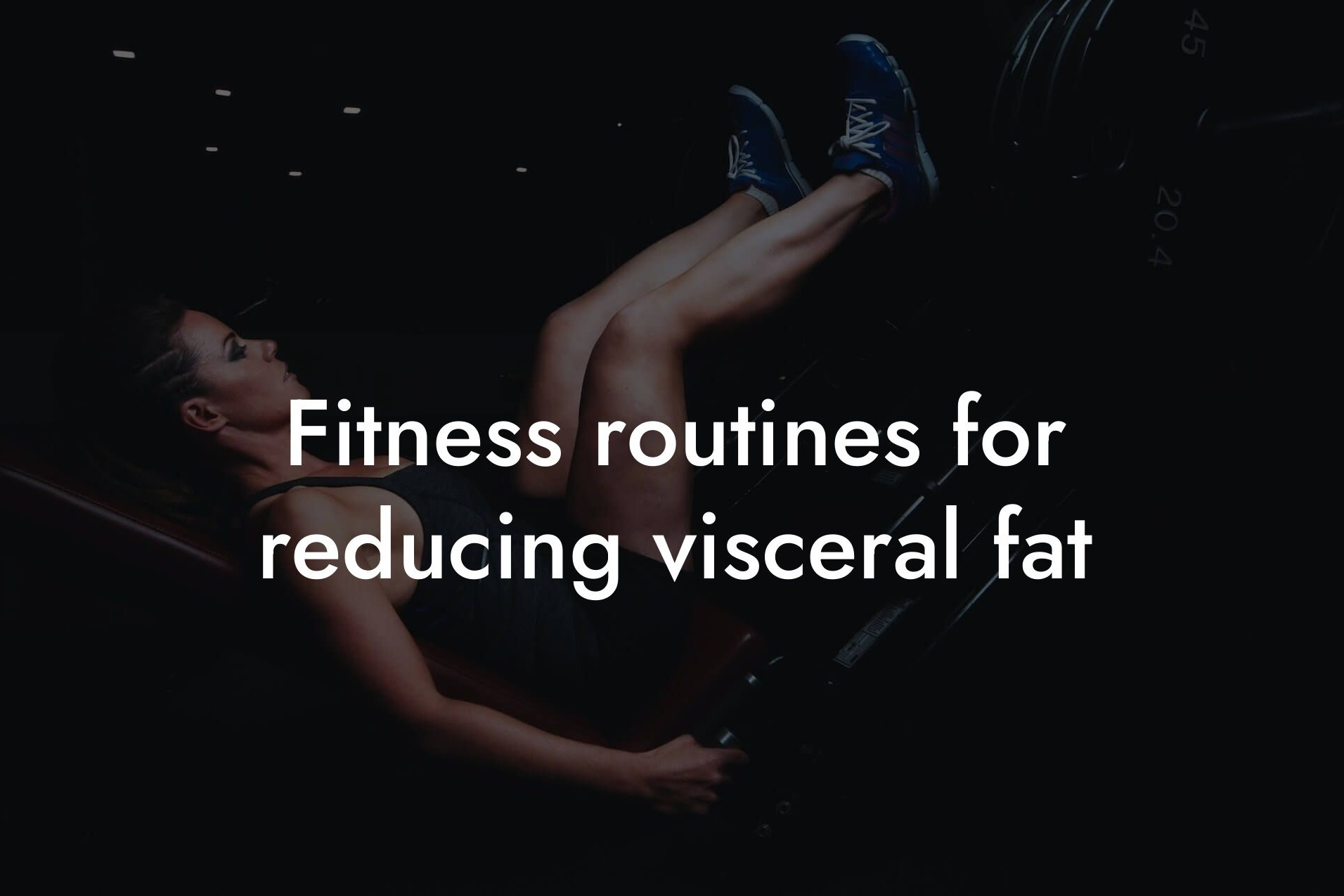As a high-earning professional, you understand the importance of taking care of your physical appearance and overall health. A DEXA (Dual-Energy X-ray Absorptiometry) scan is a valuable tool that provides a comprehensive assessment of your body composition, bone density, and muscle mass. At Tano Performance Group, we use DEXA scans to help professionals like you create a personalized workout plan tailored to their specific needs and goals. In this article, we'll guide you through the process of designing a workout plan based on your DEXA scan results.
Table of Contents
- What Do DEXA Scan Results Reveal?
- Setting Realistic Goals Based on Your DEXA Scan Results
- Creating a Workout Plan Based on Your Body Composition
- Designing a Workout Routine for Muscle Gain and Strength
- Creating a Cardiovascular Exercise Plan for Fat Loss
- Incorporating Functional Training for Improved Bone Density
- Monitoring Progress and Adjusting Your Workout Plan
- Frequently Asked Questions
What Do DEXA Scan Results Reveal?
A DEXA scan provides a detailed breakdown of your body composition, including:
- Bone density: a measure of your bone health and risk of osteoporosis
- Lean mass: the amount of muscle mass in your body
- Body fat percentage: the percentage of your body composed of fat
- Visceral fat: the amount of fat surrounding your organs
- Regional body fat distribution: the amount of fat in specific areas of your body, such as your arms, legs, and torso
By analyzing these metrics, you can identify areas for improvement and create a targeted workout plan to achieve your goals.
Setting Realistic Goals Based on Your DEXA Scan Results
Before designing a workout plan, it's essential to set realistic goals based on your DEXA scan results. Ask yourself:
- What are my specific fitness goals (e.g., weight loss, muscle gain, improved body composition)?
- What are my current fitness levels and limitations?
- What changes do I need to make to my diet and exercise routine to achieve my goals?
By setting specific, measurable, and achievable goals, you'll be more motivated and focused on your fitness journey.
Creating a Workout Plan Based on Your Body Composition
Based on your DEXA scan results, you may need to focus on:
- Increasing lean mass through resistance training and protein-rich nutrition
- Reducing body fat percentage through a combination of cardio exercise and calorie-controlled diet
- Improving bone density through weight-bearing exercises and calcium-rich nutrition
For example, if your DEXA scan reveals a high percentage of visceral fat, you may need to focus on high-intensity interval training (HIIT) and core exercises to target this area. If you have low bone density, you may need to incorporate weight-bearing exercises, such as squats and lunges, into your workout routine.
Designing a Workout Routine for Muscle Gain and Strength
If your DEXA scan results indicate a need to increase lean mass, you'll want to focus on resistance training exercises that target specific muscle groups. This may include:
- Compound exercises, such as squats, deadlifts, and bench press, that work multiple muscle groups at once
- Progressive overload, where you gradually increase the weight or resistance to challenge your muscles
- High-volume training, where you perform multiple sets and reps to fatigue your muscles
It's also essential to incorporate rest days and active recovery into your workout routine to allow your muscles to recover and rebuild.
Creating a Cardiovascular Exercise Plan for Fat Loss
If your DEXA scan results indicate a need to reduce body fat percentage, you'll want to focus on cardiovascular exercises that burn calories and improve your overall cardiovascular health. This may include:
- High-intensity interval training (HIIT), which involves short bursts of intense exercise followed by brief periods of rest
- Steady-state cardio, such as jogging or cycling, that maintains a consistent intensity throughout the exercise
- High-volume cardio, where you perform multiple sessions per week to increase your overall caloric expenditure
Remember to incorporate variety into your cardio routine to avoid plateaus and prevent overuse injuries.
Incorporating Functional Training for Improved Bone Density
If your DEXA scan results indicate a need to improve bone density, you'll want to focus on functional training exercises that target multiple muscle groups and challenge your bones. This may include:
- Weight-bearing exercises, such as squats, lunges, and deadlifts, that stress your bones and stimulate bone growth
- Balance and proprioception exercises, such as single-leg squats and balance boards, that challenge your balance and coordination
- Core exercises, such as planks and Russian twists, that target your core muscles and improve your overall stability
Functional training exercises can also improve your overall fitness and reduce your risk of injury.
Monitoring Progress and Adjusting Your Workout Plan
Regularly monitoring your progress is essential to achieving your fitness goals. This may include:
- Tracking your workouts and progress through a fitness journal or mobile app
- Measuring your body fat percentage and lean mass through regular DEXA scans
- Adjusting your workout plan based on your progress and goals
By regularly monitoring your progress and making adjustments to your workout plan, you'll be more likely to achieve your fitness goals and maintain long-term success.
Designing a workout plan based on your DEXA scan results is a personalized approach to fitness that takes into account your unique body composition, bone density, and muscle mass. By setting realistic goals, creating a workout routine that targets your specific needs, and monitoring your progress, you'll be well on your way to achieving your fitness goals and improving your overall health and well-being. At Tano Performance Group, we're committed to helping high-earning professionals like you achieve their fitness goals and take their business to the next level.
Frequently Asked Questions
What is a DEXA scan, and how does it help with workout planning?
A DEXA (Dual-Energy X-ray Absorptiometry) scan is a non-invasive test that measures body composition, including bone density, lean mass, and body fat percentage. The results provide a detailed breakdown of your body's composition, allowing you to create a personalized workout plan tailored to your specific needs and goals.
Why is it important to design a workout plan based on DEXA scan results?
By understanding your body composition, you can create a workout plan that targets specific areas of improvement, such as increasing muscle mass, reducing body fat, or improving bone density. This personalized approach helps you achieve your fitness goals more efficiently and effectively.
What information does a DEXA scan provide?
A DEXA scan provides a detailed report on your body composition, including your lean mass, fat mass, bone density, and body fat percentage. It also provides a breakdown of your body fat distribution, including visceral fat, which is linked to various health risks.
How do I interpret my DEXA scan results?
Interpreting your DEXA scan results requires a basic understanding of body composition metrics. Our team at Tano Performance Group can help you understand your results and create a personalized workout plan based on your specific needs and goals.
What is lean mass, and why is it important?
Lean mass refers to the amount of muscle tissue in your body. Having a high lean mass is important for overall health, as it helps with metabolism, bone density, and overall physical function. A DEXA scan can help you identify areas where you may need to focus on building lean mass.
What is visceral fat, and why is it a concern?
Visceral fat is a type of fat that accumulates around your organs, such as your liver, stomach, and intestines. Excess visceral fat is linked to various health risks, including insulin resistance, type 2 diabetes, and cardiovascular disease. A DEXA scan can help you identify if you have excess visceral fat and develop a plan to reduce it.
How does bone density affect my workout plan?
Bone density is an important metric, especially as we age. A DEXA scan can help identify areas where you may need to focus on building bone density, such as through resistance training and weight-bearing exercises.
Can I use DEXA scan results to track my progress?
Absolutely! DEXA scan results provide a baseline measurement of your body composition. By tracking your progress over time, you can see the effectiveness of your workout plan and make adjustments as needed.
How often should I get a DEXA scan?
The frequency of DEXA scans depends on your individual goals and needs. Generally, we recommend getting a DEXA scan every 6-12 months to track progress and make adjustments to your workout plan.
What types of exercises are best for building lean mass?
Resistance training exercises, such as weightlifting and bodyweight exercises, are effective for building lean mass. Additionally, high-intensity interval training (HIIT) and progressive overload can also help increase lean mass.
How can I reduce body fat percentage?
Reducing body fat percentage requires a combination of a healthy diet and regular exercise. Focus on creating a calorie deficit through a balanced diet and incorporating exercises that target fat loss, such as HIIT and cardio exercises.
What is the ideal body fat percentage for men and women?
The ideal body fat percentage varies based on age, sex, and other factors. Generally, for men, a body fat percentage of 10-15% is considered ideal, while for women, a body fat percentage of 15-20% is considered ideal.
How does age affect body composition?
As we age, our body composition naturally changes. We tend to lose lean mass and gain body fat, which can lead to various health risks. A DEXA scan can help identify areas where you may need to focus on building lean mass and reducing body fat.
Can I use DEXA scan results to improve my athletic performance?
Absolutely! DEXA scan results can help identify areas where you may need to focus on building lean mass, improving bone density, or reducing body fat to enhance your athletic performance.
How does nutrition play a role in achieving my fitness goals?
Nutrition plays a critical role in achieving your fitness goals. A balanced diet that provides adequate protein, healthy fats, and complex carbohydrates can help support muscle growth, fat loss, and overall health.
Can I use DEXA scan results to monitor my health risks?
Yes, DEXA scan results can help identify health risks associated with excess body fat, low bone density, and other body composition metrics. By monitoring your results, you can take proactive steps to reduce your risk of chronic diseases.
How does stress affect body composition?
Chronic stress can have a negative impact on body composition, leading to increased body fat and decreased lean mass. Managing stress through techniques like meditation, yoga, and deep breathing exercises can help support your fitness goals.
Can I use DEXA scan results to improve my overall health?
Absolutely! DEXA scan results provide a comprehensive picture of your body composition, allowing you to identify areas where you may need to focus on improving your overall health and reducing your risk of chronic diseases.
How does sleep affect body composition?
Sleep plays a critical role in body composition, as it helps regulate hormones that control hunger, fullness, and metabolism. Aim for 7-9 hours of sleep per night to support your fitness goals.
Can I use DEXA scan results to create a personalized nutrition plan?
Yes, DEXA scan results can help identify areas where you may need to focus on nutrition, such as increasing protein intake to support muscle growth or reducing carbohydrate intake to support fat loss.
How does hormone imbalance affect body composition?
Hormone imbalances, such as low testosterone or insulin resistance, can affect body composition. A DEXA scan can help identify areas where hormone imbalances may be impacting your body composition.
Can I use DEXA scan results to improve my mental health?
Yes, DEXA scan results can help identify areas where you may need to focus on improving your mental health, such as reducing stress and anxiety through exercise and nutrition.
How does consistency play a role in achieving my fitness goals?
Consistency is key to achieving your fitness goals. By creating a workout plan based on your DEXA scan results and sticking to it, you can see significant improvements in your body composition and overall health.
What is the role of accountability in achieving my fitness goals?
Accountability is crucial to achieving your fitness goals. Working with a personal trainer or fitness coach can help you stay motivated and accountable, ensuring you reach your goals.
How can I get started with creating a workout plan based on my DEXA scan results?
Our team at Tano Performance Group can help you create a personalized workout plan based on your DEXA scan results. Contact us today to get started on your fitness journey!
Here are some related articles you might love...
- The best exercises for a strong core
- CrossFit: Pros and cons for body composition
- Fitness routines for reducing visceral fat
- Strength training for bone density enhancement
- Strengthening exercises for bone fracture prevention
- Functional fitness for professionals
- Pilates for flexibility and core strength
- Benefits of resistance bands for muscle toning
- Balancing strength training with cardiovascular health
Zak Faulkner
Zak Faulkner is a leading authority in the realm of physical health and body composition analysis, with over 15 years of experience helping professionals optimise their fitness and well-being. As one the experts behind Tano Performance Group, Zak has dedicated his career to providing in-depth, science-backed insights that empower clients to elevate their physical performance and overall health.
With extensive knowledge of DEXA technology, Zak specializes in delivering comprehensive body assessments that offer precise data on body fat, muscle mass, bone density, and overall physique. His expertise enables individuals to make informed decisions and achieve their fitness goals with accuracy and confidence. Zak’s approach is rooted in a deep understanding of human physiology, combined with a passion for helping clients unlock their full potential through personalised strategies.
Over the years, Zak has earned a reputation for his commitment to excellence, precision, and client-focused service. His guidance is trusted by top professionals who demand the best when it comes to their health. Whether advising on fitness programs, nutritional strategies, or long-term wellness plans, Zak Faulkner’s insights are a valuable resource for anyone serious about taking their health and fitness to the next level.
At Tano Performance Group, Zak continues to lead our Content Team revolutionising how professionals approach their physical health, offering unparalleled expertise that drives real results.




